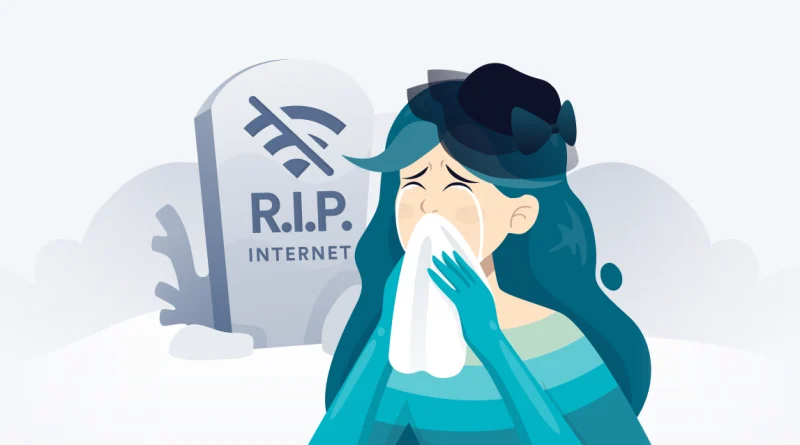Could the Internet Ever Go Down?
Cutting off the internet an masse would require massive, unprecedented concerted effort. A solar flare. An upscale cyber attack. A nuclear war.
But its constituent elements are prone to occasional periodic disconnection through, say, server crash or cable break beneath the waves.
It’s not centralized
No single ‘on’ switch exists for the internet as a whole, but it was engineered for redundancy – using different platforms and different technologies – and was less vulnerable to attacks than an individual network.
To take down the net would require going after the few companies running critical parts with overwhelming force. An attempt to overwhelm networks with traffic may not even be viable on a large scale.
The internet is made up of geosynchronous satellite connections, fibre optic cables that span the Earth and link continents and oceans, and is prone to damage from natural disasters such as rockslides, earthquakes or other force majeure.
Its universal reach and its role as a primary tool for commerce make it a vital resource. The cost of an internet meltdown for companies conducting e-commerce would be a staggering trillions of dollars in revenue losses, potentially crippling the world economy with a crisis that would be difficult, if not impossible, to rebound from.
It’s not a single entity
It is a vast, global network of electronic devices and electronic protocols that connects people, organizations and governments with their constituents. By allowing them to share information freely, the Internet has taken root all around the world and is an integral part of our daily lives, enabling us to stay in touch with our relations in a world of global transactions.
For all its complexity, the Internet is resilient. If large swathes are cut off for any reason, other areas will still be active because packets can find their way round congestion – just as when one stretch of highway shuts down completely, you can still follow your desired routes to get where you are going.
It’s distinct from the ownership of the internet, which is layered on top of technologies that distribute it – the data center’s, cables, satellites, routers – some components of which are distributed, too.
It’s not a technology
The internet is a global network of networks and protocols to traverse information across computers, servers, routers, cables connecting data centers all over the world and people across the world. The internet has completely changed our lives today. The internet is bringing people and business closer than ever before.
This arrangement goes back to the early days of the Internet, which was designed as a system of defence department research networks in the Cold War era, when it could be broken by a barrage of Soviet nuclear missiles. The message was chopped into pieces that took independent routes towards their target – bits, we now call them, that end in your thing and what you see on it.

